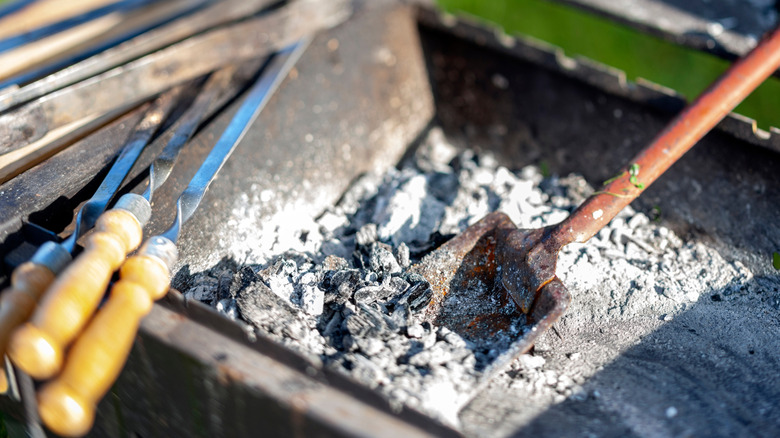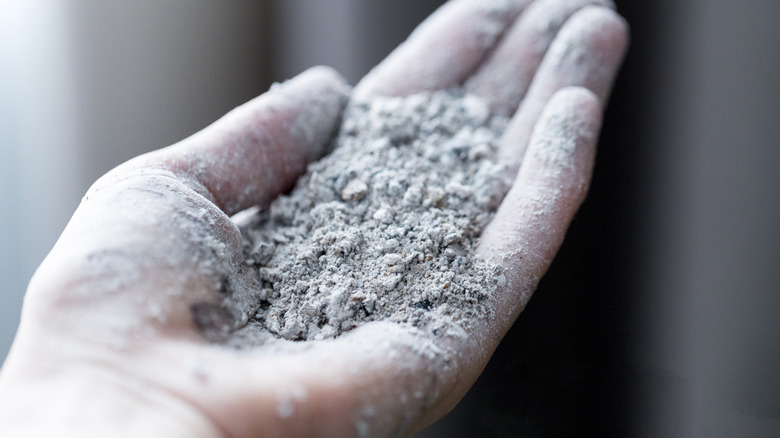Read This Before You Sprinkle Charcoal Ash From Your Grill On Your Garden
Your weekend BBQ might leave behind what looks like garden gold, i.e., grill ash. But, is it? There are a few things you need to consider before you go about sprinkling ash all over your garden. Not all types of grill ash are the same. They vary in composition and can even damage the soil of your garden. But it is not to say that ash isn't useful. It is a tried and tested soil amendment. For instance, wood and lump charcoal ash boosts the availability of calcium and potassium while also raising the soil pH. However, if the ash in your grill came from commercial briquettes, then it is a whole other story. Commercial briquettes often contain chemical accelerants, binders, and fillers. Some of these chemicals are harmful, and they can leach into the soil. To answer shortly: only put ash from your grill in your garden if it is clean. You need to be sure it is devoid of preservatives, paints, or lighter fluids.
Also, sprinkling ash, no matter the source, without a soil test can cause a rapid spike in soil pH, change soil chemistry, and create a nutrient imbalance. Don't make the mistake of considering grill ash as a the best fertilizer to use for every lawn. Wood ash contains almost no nitrogen and only measurable quantities of potassium and calcium. You should also never apply ash directly to seedlings and foliage. The caustic nature of grill ash can easily burn delicate foliage. Additionally, several studies have shown that grill ash contains polycyclic aromatic hydrocarbons (PAHs) and metals. These chemicals and metals can damage plants and, in humans, cause cancer.
Using grill ash safely and alternatives
First of all, perform a soil test checking for nutrients and pH before adding anything. It will not only give you an idea of whether or not to use ash, but it will also help you calculate the application rates. Wood ash is only recommended to be used in small quantities — a few pounds per thousand square feet annually. Also, make sure that the grill ash is clean of unburnt pieces of wood or charcoal and cool to the touch before you start preparing soil for your garden. It is also better to not use briquette ash or ash derived from treated wood — just dispose of it in accordance with local guidelines. Briquettes and some combustion residues can carry binders, salts, and PAHs that are not suitable for inclusion in garden soils. You can also look into safer alternatives to grill ash!
If you are trying to fix soil pH, finely ground agricultural lime is an excellent option for predictable, long-term pH corrections. On the other hand, if you are trying to improve soil nutrient profile and water holding capacity, consider the use of biochar or compost. They release nutrients slowly while also improving texture. And, if you are itching to use the grill ash, go easy — apply calculated amounts. Try to incorporate it thoroughly into the topsoil, measure the pH of your soil regularly, and make sure to protect your acid-loving plants.

